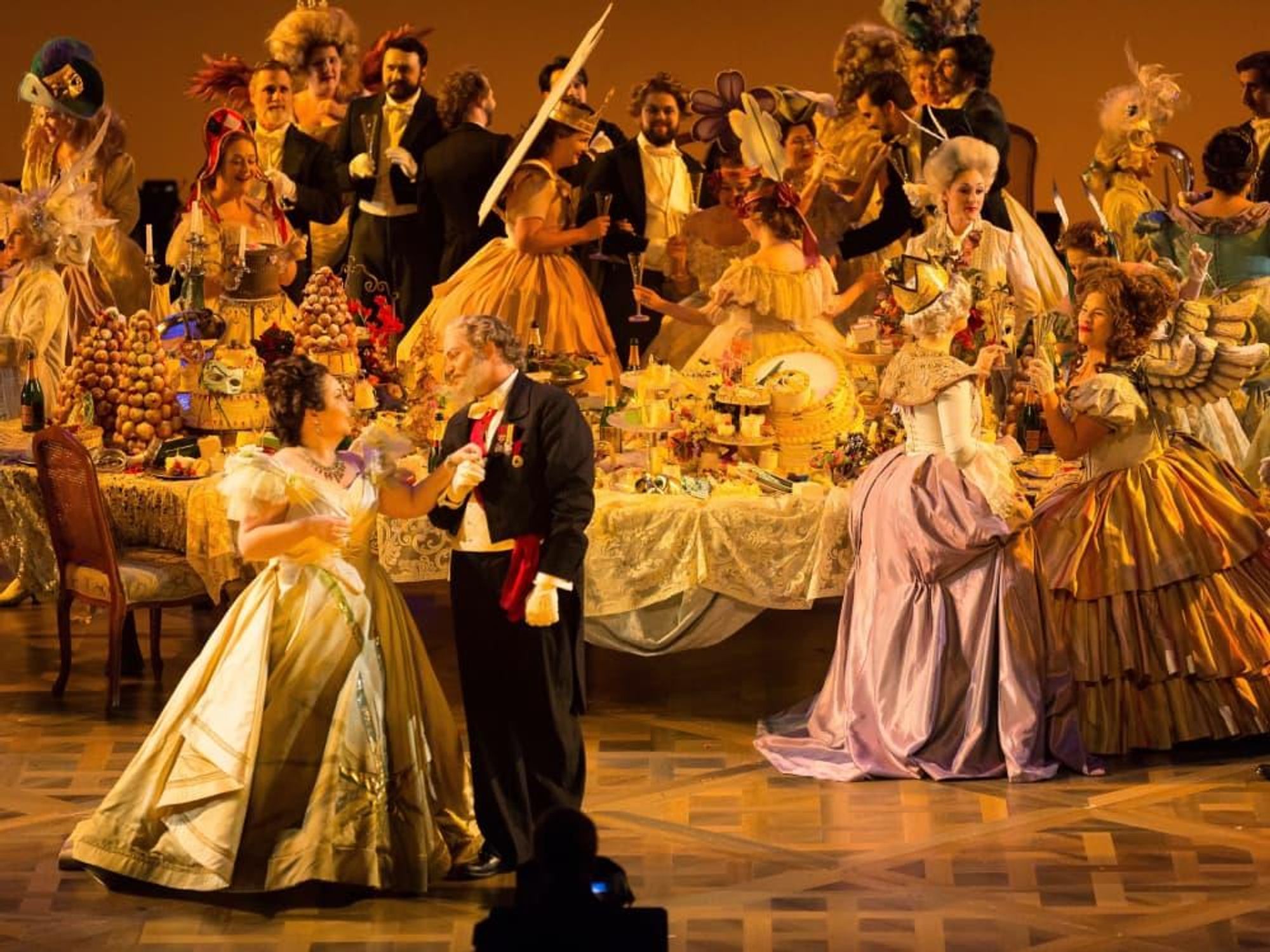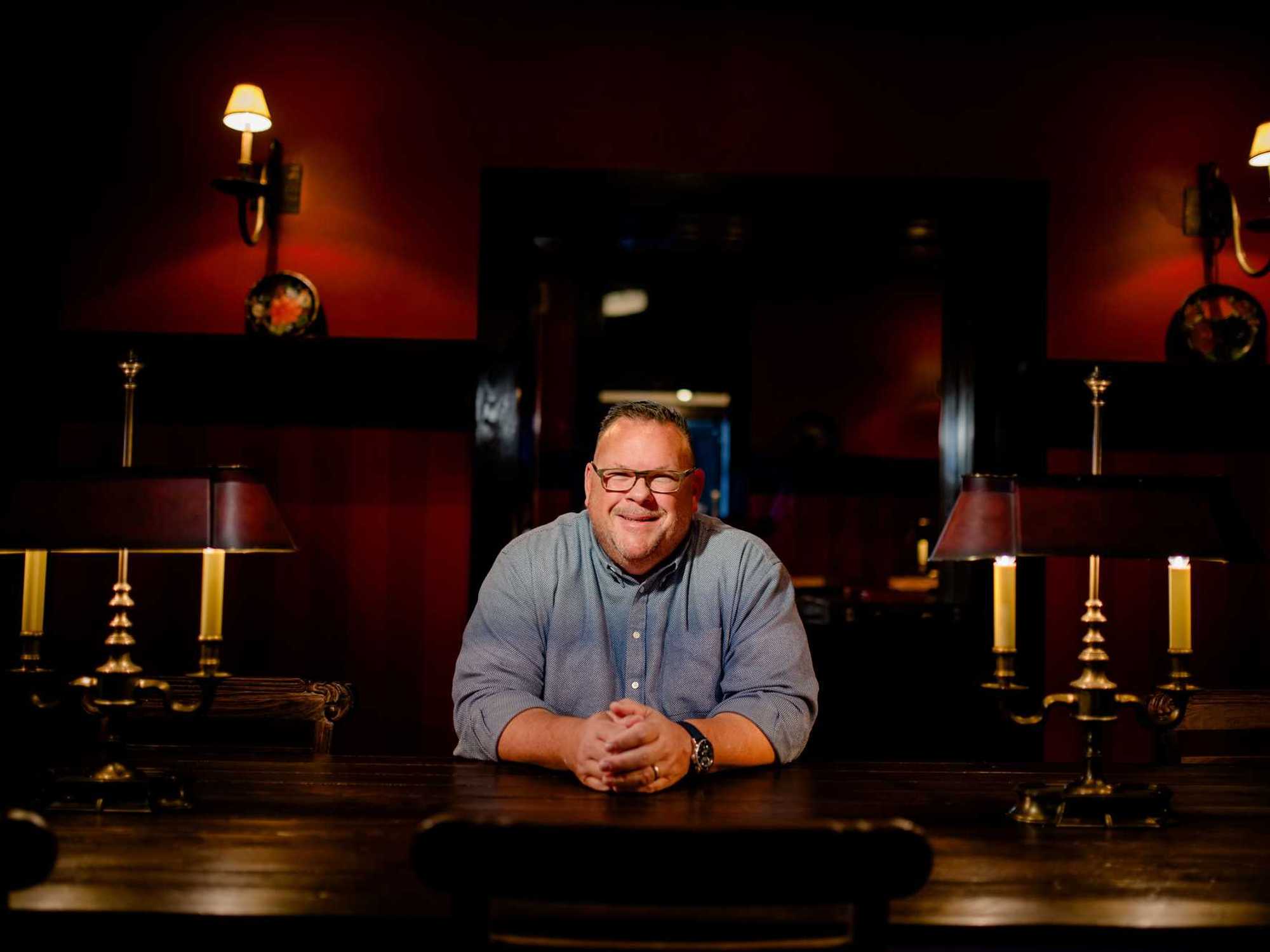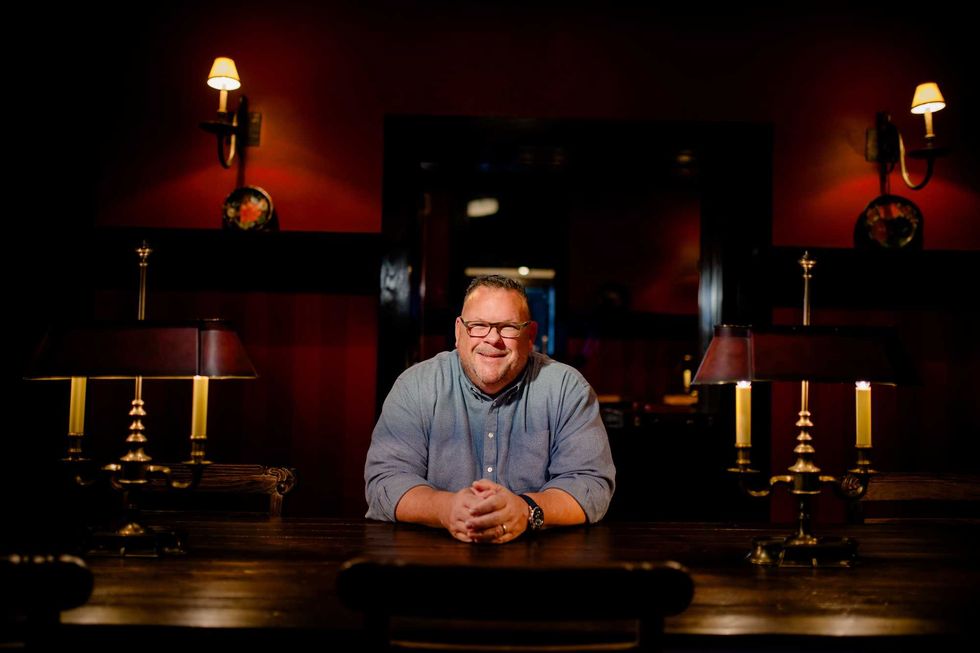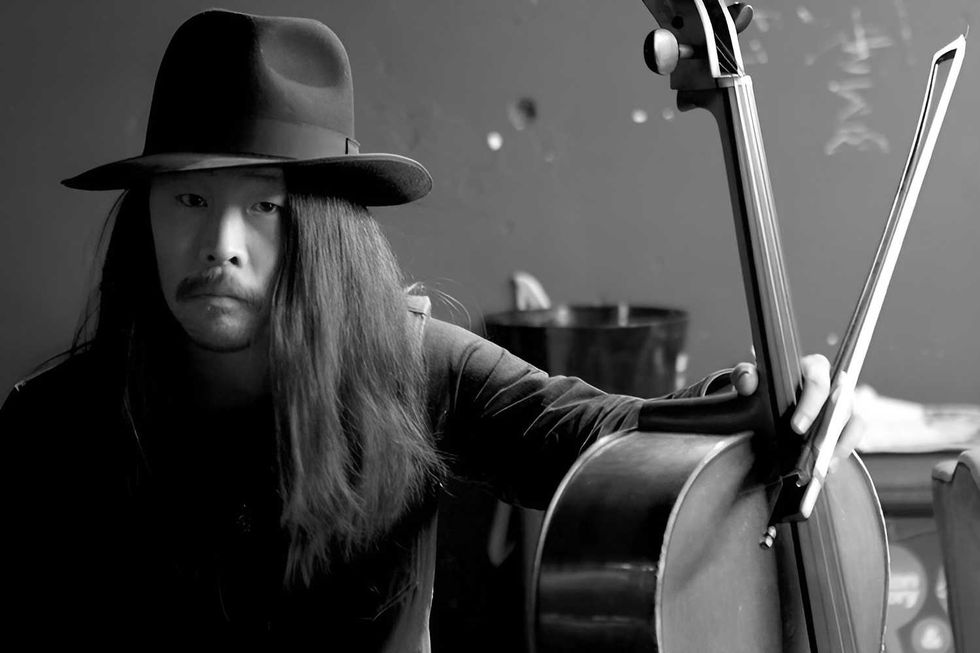HGO at the GRB
Must the show go on? Houston Grand Opera's valiant La Traviata can't hide building's flaws

Must the show always go on? When you name your temporary performance space the Resilience Theater, you're saying it will, no matter what. Going on under any circumstances may be the best of the bad choices disaster presents you. Certainly, Houston Grand Opera's season-opening performances of Giuseppe Verdi's La Traviata was a testament to the will to carry on in the wake of the Hurricane Harvey, which flooded the still-unusable Wortham Theater Center.
But hearing opera in a constructed space in the George R. Brown Convention Center is challenging at best. Anyone attending the Houston Grand Opera this year attends knowing that circumstances will unavoidably mar the experience. In any other context such defects would be unacceptable. You might say opera, in these circumstances, is barely reviewable. What was caused by the unfortunate venue? Should you still ignore it? What still may have happened at the Wortham? A little setting of the scene might help sort the dross from the gold.
On the way to the performance, I wandered past the Houston Maker Faire and in another hall overheard mostly men in suits and badges talking about network transparencies. Arriving on the third floor of Hall A, I found a space I suppose best described as gussied up. Convention centers aren't ugly spaces so much as they are non-spaces. At best that makes them blank canvases, but draped fabrics, generically modern white furniture, displays of opera costumes and props, potted trees (I couldn't say if they were real or fake), and high-end portapotties only do so much. I thought to myself, if Design Within Reach had a green room, it might look something like this.
Weirdly expansive
The performance area felt weirdly expansive. If at first my heart sank at the bleachers where I would be sitting, I soon felt relieved not to be on the rows of hotel banquet chairs in front of the bleachers. As opera-goers scrabbled up the steps, I heard a gentleman behind me regaling his companion with tales of near falls from a previous night's performance.
There were also those in the hall prepared to celebrate before the curtain opened. I heard a lot of stock phrases like "Lemonade out of lemons" or "It's a small miracle." One patron, who seemed to be in the know, said, "It was never thought we wouldn't perform." As I heard these sentiments, I found myself worrying more about the performance to come. Like the name Resilience, these comments seemed to prepare for the worst and to ward off in advance any criticism.
The stage itself is a severely raked half-circle, behind which, and at some distance, the orchestra sits, necessitating a second conductor in front of the stage for the sake of the singers. One consequence of this may have been a sluggishness of tempo, as conductors Eun Sun Kim and Bradley Moore felt staying together would be more likely without as much speed. Of course, we've all heard tempi lag in the Wortham as well.
To say the least, the space is not designed with acoustics in mind. A great deal of the singing felt thin and half-muted even though I could tell, especially in the case group scenes, that the singers were exerting themselves. For whole stretches of the performance I felt barely connected to the orchestra, which is an odd reversal given how often, in the Wortham, the orchestra covers the singers. Noises in the audience were magnified as were those outside the performance (like clean up from the food vendors). One patron complained about the curtains at the entrance opening and closing and letting in too much light during the performance.
Star power
Yet if challenges such as these pose a test, a true star will pass with flying colors. There was no greater star in this production than soprano extraordinaire Albina Shagimuratova, who I've been delighted to see triumph at HGO in Lucia di Lammermoor, last year in The Abduction from the Seraglio, and, five seasons ago, as Violetta, the courtesan turned doomed-lover dying of consumption in La Traviata. In the first act, she stalks the own party with a bottle of bubbly in hand as if ready to pour a drink or crack someone in the noggin and in either case with true abandon. Her first act aria, in which she debates between her pleasurable and undemanding life in the city and the tribulations of her love for Alfredo was pure, sweet and potent.
I was sure Shagimuratova would be great, but perhaps therein lies a problem unrelated to venue. I appreciate any chance to see her sing, but I have been wondering, since the season was announced, why I would be hearing her as Violetta again. Perhaps the company repeats works and singers too often. How much better it would be to hear Shagimuratova in something else entirely and, if we are to hear La Traviata again so soon, to experience some other astonishing voice as Violetta.
Similarly unstoppable was baritone George Petean who was undeniable as Giorgio Germont, the stern father of Violetta's lover Alfredo. Not only did he master the hostile conditions in the hall but his duets with Shagimuratova offered some of the best singing of the day.
Voices lost
And yet, so many voices were lost. Many singers could not power through the conditions. The singers who could project had to avoid either turning too far from the audience (and thus becoming inaudible) or stepping too far upstage (and entering an echo chamber). These, however, are problems of blocking that might be adjusted. Even the great voices of Shagimuratova and Germont fell victim to the space occasionally, sometimes at the most poignant of moments, including Shagimuratova's otherwise heart-wrenching rendition of the third act masterpiece Addio, del passato bei sogni ridenti ("Farewell, lovely, happy dreams of the past").
A father's excellence points up the failings of a son. I'm not here referring to the plot but, rather, to tenor Dimitri Pittas's disappointing turn as Alfredo. Pitch seemed a struggle in the first and third acts, and the higher notes often felt thin and quavering. Chemistry being what it is, I found myself wishing Violetta had fallen in love with the father. The conditions of the hall may have played a part but I suspect this Alfredo may have run into similar troubles in the Wortham. After all, Yelena Dyacheck, as Violetta's maid Annina, Zoie Reams, as Flora Bervoix, made much more of much smaller parts with their deft performances.
Late in the first act Violetta debates her future: will she seek pleasure or love? All this year there will be a war between the pleasure of opera performed in ideal conditions and the love of the institution that is the HGO. The Resilience Theater offers little pleasure but it prevents the unimaginable canceling of perhaps an entire season. I am as heartened as I am apprehensive about what's to come. What will happen to, say, Elektra, the true highlight of the season? Only time will tell.
Pleasure or love? Like Violetta, no one can win that debate.






